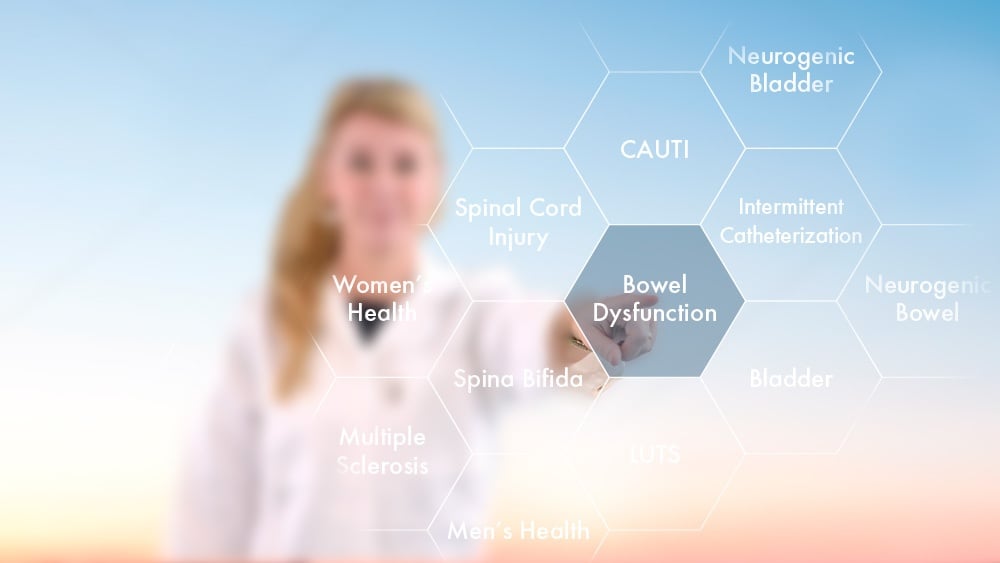Few things are as embarrassing as having a bowel accident. Yet this is the everyday reality for a lot of people. Fecal incontinence, i.e. involuntary loss of liquid and solid stool, mucus or wind, is a very distressing condition which significantly reduces quality of life.
Read MoreTopics: Science Alert, Bowel dysfunction, Fecal incontinence
“Given the improved longevity of individuals with SB [spina bifida], transitional care issues (such as health-related independence) are becoming progressively more vital.”
Castillo et al. J Pediatr Rehabil Med. 2017;10(3-4):219-226.
Read More
Topics: Science Alert, Spina Bifida, Bowel dysfunction
Constipation and fecal incontinence are two symptoms of bowel dysfunction. There may be a cause, like impaired innervation of the intestine due to disease or injury. There may also be no traceable cause of the bowel symptoms; this is then called functional constipation or functional fecal incontinence.
Read MoreTopics: Science Alert, Neurogenic bowel, Bowel dysfunction
Bowel function in children is a common concern, not only for the child but also parents and caregivers. As it is perceived as a measurement of health, deviations from normal bowel function often instigate numerous visits to a primary care provider.
Consequently, bowel dysfunction is one of the most common problems evaluated by pediatricians, pediatric gastroenterologists, and pediatric surgeons. This may be the reason why two recent publications review diagnosis, standard bowel care, and prevention of pediatric constipation.
Read MoreTopics: Science Alert, Neurogenic bladder, Children and TAI, Bowel dysfunction







